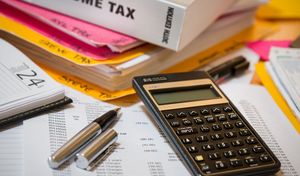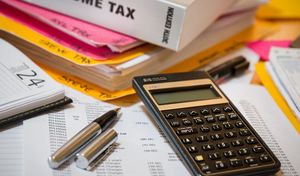Preparing for the Certified Public Accountant (CPA) exam can be an intense and challenging journey, but with the right study plan and strategies, success is within your reach. The CPA exam is a rigorous assessment that requires a comprehensive understanding of accounting principles, business laws, taxation, and auditing practices. In this blog, we will delve into the most effective techniques and strategies to help you maximize your study efforts and increase your chances of passing the CPA exam. From creating a study schedule to utilizing review materials and practicing with sample questions, we'll guide you step-by-step toward exam success.
I. Understand the Exam Structure and Requirements
Before embarking on your CPA exam preparation journey, it is crucial to have a solid understanding of the exam's structure and requirements. This knowledge will allow you to plan your study approach effectively and allocate your time and resources accordingly. Here are some key aspects to consider:
Exam Sections: The CPA exam consists of four sections, each focusing on different areas of accounting and related topics:
Auditing and Attestation (AUD):
This section tests your knowledge of auditing procedures, professional standards, and attestation engagements.
Business Environment and Concepts (BEC):
The BEC section assesses your understanding of business concepts, economic concepts, and corporate governance.
Financial Accounting and Reporting (FAR):
This section covers financial accounting standards, financial statement preparation, and related topics.
Regulation (REG):
The REG section focuses on federal taxation, business law, ethics, and professional responsibilities.
- Content Areas and Weighting:
Each section of the CPA exam comprises multiple content areas, and these areas have different weights, indicating their importance in the overall exam score. Understanding the content areas and their respective weights can help you prioritize your study efforts. For example, if a particular content area has a higher weight, you may need to allocate more study time to master its concepts. - Time Limits:
Each section of the CPA exam has a specified time limit. Understanding the time constraints for each section will help you develop effective time management strategies during your preparation and on the actual exam day. It is essential to practice solving questions within the allocated time to build speed and accuracy. - Exam Format:
The CPA exam is computer-based and is administered by the American Institute of Certified Public Accountants (AICPA). It is composed of multiple-choice questions, task-based simulations, and, in some sections, written communication tasks. Familiarizing yourself with the exam format will allow you to practice and become comfortable with the different question types. - Exam Scoring and Passing Requirements:
To pass the CPA exam, you need to achieve a minimum score on each section. The passing score varies by jurisdiction but is typically set around 75. It is important to research the specific requirements of the jurisdiction in which you plan to become licensed to ensure you meet all necessary criteria. - Exam Administration and Scheduling:
The CPA exam is administered by Prometric test centers, which are located worldwide. You will need to schedule your exam appointments in advance, considering factors such as availability, personal commitments, and your study progress. It is advisable to plan your exam dates strategically, allowing sufficient time for thorough preparation and review.
By gaining a comprehensive understanding of the CPA exam structure and requirements, you can tailor your study plan to align with the exam's demands. This knowledge will enable you to focus on the areas that require more attention, allocate your study time effectively, and approach the exam with confidence.
II. Create a Study Schedule
Developing a study schedule is crucial for maintaining discipline and consistency throughout your CPA exam journey. Consider the following tips when creating your schedule:
- Set realistic goals: Break down your study time into manageable segments, setting aside specific hours each day or week for exam preparation.
- Allocate study time wisely: Dedicate more time to challenging sections and allocate extra hours for practice exams and review sessions.
- Maintain balance: Ensure a healthy balance between study time, breaks, and personal commitments. Avoid overexertion and burnout by incorporating leisure activities and time for self-care.
III. Choose the Right Study Materials
Quality study materials are essential for effective CPA exam preparation. Consider the following resources:
- Review courses: Enroll in a comprehensive CPA review course offered by reputable providers. These courses offer structured study materials, video lectures, practice questions, and simulated exams.
- Textbooks and guides: Utilize trusted CPA review textbooks and study guides, which provide in-depth explanations of concepts, examples, and practice questions.
- Online resources: Leverage online platforms, such as reputable accounting forums, educational websites, and CPA exam review forums, for additional study materials, explanations, and support.
IV. Utilize Practice Questions and Simulated Exams
Practicing with sample questions and taking simulated exams is crucial for building confidence and improving your exam performance. Consider the following strategies:
- Review question banks: Access question banks that offer a vast array of practice questions, organized by topic and difficulty level. Regularly solve these questions to reinforce your understanding and identify areas that require further study.
- Simulated exams: As you progress in your study journey, take timed simulated exams that mimic the real exam experience. This helps you develop stamina, time management skills, and familiarity with the exam format.
V. Form Study Groups and Seek Support
Studying for the CPA exam can be a challenging and solitary endeavor. However, forming study groups and seeking support from peers and mentors can greatly enhance your learning experience. Consider the following tips:
- Join study groups: Connect with fellow CPA exam candidates through online platforms or local study groups. Collaborating with others allows you to discuss challenging concepts, share study materials, and gain different perspectives on complex topics.
- Engage with mentors: Seek guidance from experienced CPAs or mentors who have successfully navigated the CPA exam. Their insights and advice can help you refine your study techniques, address concerns, and provide motivation during challenging times.
VI. Review and Adjust Your Study Plan
As you progress in your CPA exam preparation, it is essential to periodically review and adjust your study plan. Consider the following:
- Identify weak areas: Regularly assess your performance in practice questions and simulated exams to identify areas where you need improvement. Allocate additional study time to these areas to strengthen your knowledge.
- Adapt your strategy: If a particular study technique or resource is not proving effective for you, be flexible and explore alternative approaches. Everyone learns differently, so find what works best for your learning style.
- Take breaks and rest: Avoid studying non-stop for extended periods. Schedule regular breaks to rest your mind and rejuvenate. Adequate rest enhances concentration and information retention.
Conclusion
Preparing for the CPA exam is a demanding task that requires discipline, perseverance, and effective study strategies. By understanding the exam structure, creating a study schedule, utilizing quality study materials, practicing with sample questions, seeking support from study groups and mentors, and periodically reviewing and adjusting your study plan, you can optimize your chances of success.
Remember, the journey to becoming a CPA is not just about passing the exam—it is about acquiring a deep understanding of accounting principles and cultivating the skills necessary to excel in the field. Embrace the process, stay motivated, and believe in your abilities. With dedication and a well-structured study plan, you can conquer the CPA exam and embark on a rewarding and fulfilling career as a Certified Public Accountant. Best of luck!

FAQs: Mastering the CPA Exam
What is the CPA exam?
The CPA exam is the Certified Public Accountant exam, which is a rigorous assessment that individuals must pass to become licensed CPAs. It tests candidates' knowledge and understanding of accounting principles, business laws, taxation, and auditing practices.
How many sections are there in the CPA exam?
The CPA exam consists of four sections: Auditing and Attestation (AUD), Business Environment and Concepts (BEC), Financial Accounting and Reporting (FAR), and Regulation (REG).
How should I create a study schedule for the CPA exam?
When creating a study schedule, set realistic goals, allocate study time wisely based on the exam's content areas, and maintain a balance between study time, breaks, and personal commitments.
What are the recommended study materials for the CPA exam?
Recommended study materials include comprehensive CPA review courses offered by reputable providers, textbooks, study guides, online resources such as accounting forums and educational websites, and sample questions and simulated exams.
How can I practice for the CPA exam?
To practice for the CPA exam, utilize question banks that offer practice questions organized by topic and difficulty level. Additionally, take simulated exams that mimic the real exam experience to develop stamina, time management skills, and familiarity with the exam format.





